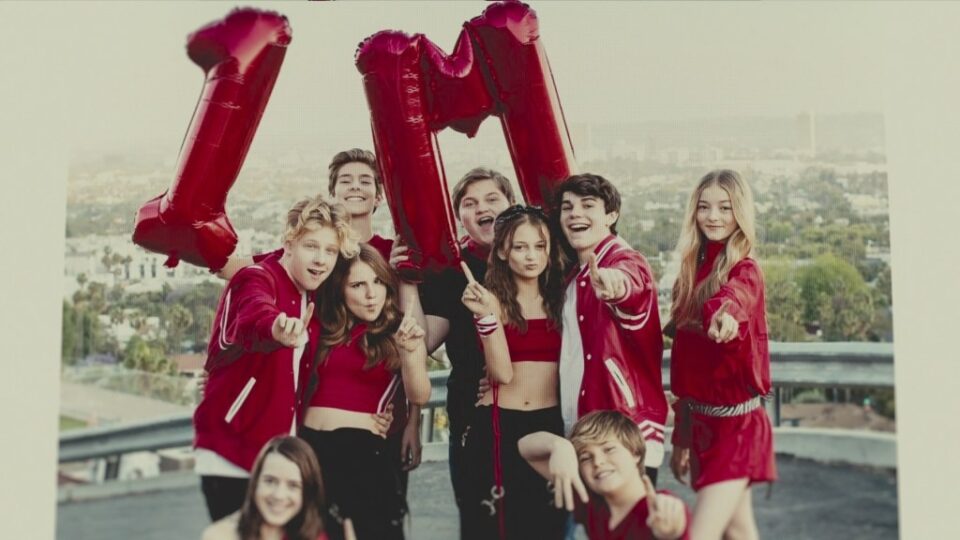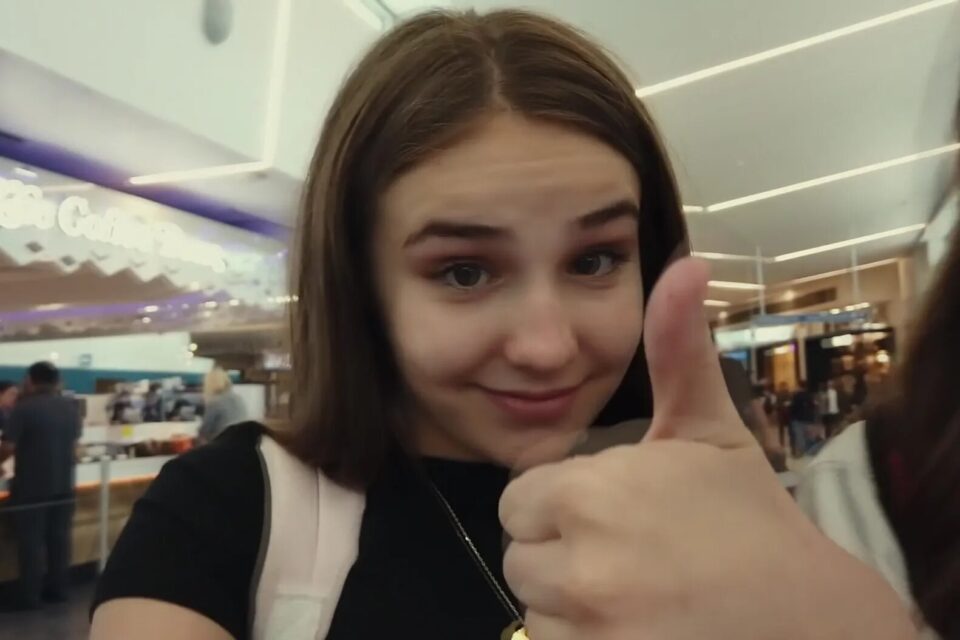‘Bad Influence’: New Docuseries Shines Light on the Dangers For Kid Creators
The new Netflix series explores the word of child influencing and the conflicts both creator and consumers are challenged by to this day
At $250 billion a year and growing, the creator economy is a well-established industry — one that can rake in hundreds of thousands of dollars a month for some of the most popular creators. In Netflix’s new docuseries Bad Influence: The Dark Side of Kidfluencing, audiences are introduced to one such influencer, former child star Piper Rockelle who — with her mother’s help — turned an online fan base into a social media empire. But while directors Jenna Rosher and Kief Davidson chart Rockelle’s rise from pageant queen to YouTube star, the docuseries also recounts the legal battle that exposed some of the industry’s biggest dangers.
Rockelle first became an internet star at the age of nine, eventually building to over 10 million subscribers on YouTube. At the height of her fame, around 2019, she and a collective of other child influencers known as the “Squad” worked together on vlogs, challenge videos, and cross-promotional content. A majority of the Squad lived in a Los Angeles home with Rockelle and her mother Tiffany Smith, who managed the influencer and the rotating cast of children who frequently appeared in Rockelle’s videos.
But in 2022, 11 young influencers and their parents sued Smith and claimed that while they were active in the Squad and lived in the home, they were not paid for their work and were subjected to “ verbal and sexual” battery, as well as a pressure to sexualize their work and videos. The lawsuit was settled for $1.85 million in 2024 and Rockelle and Smith have continually denied the claims through an attorney, including in a statement to Rolling Stone, calling the lawsuit “baseless claims from … stage-mom Karens.” YouTube demonetized Rockelle’s account in 2022 when news of the lawsuit broke, claiming Smith violated “Creator Responsibility policy by engaging in off-platform behavior that harms the YouTube community,” according to Insider. But while Bad Influence is focused on the story of one influencer and her allegedly aggressive momager, the series also highlights the exploitation inherent to child influencing — a conflict both creator and consumers are challenged by to this day.
In the case of Rockelle, almost a dozen of her former collaborators claimed that this lack of insight allowed Smith to run their YouTube channels without any regard for the safety or mental health of her young clients. According to the 2022 lawsuit, 11 minors between the ages of 10 and 17 collaborated with Rockelle on YouTube videos between 2017 and 2020. Several of these creators speak out in Bad Influence, and say while their personal brands grew while they were part of the Squad, the actual filming process subjected them to mounds of verbal abuse, long working hours, shortened school time, and coercion to sexualize the material. According to the 2022 lawsuit, the children were pressured to act or dress provocatively as they got older, and encouraged to kiss and fondle each other on screen.
“I was there in the very early days,” content strategist Brandon Stewart, who worked with an unnamed child in the Squad early in their career, says in Bad Influence. “The moment that changed my perspective on Tiffany Smith was the consecutive calls I was receiving from parents in the Squad about the pressure that [the kids] were being given to wear certain clothes, do certain things on set, to work a certain amount of hours. As more and more information started to unravel, I realized how dark of a place it had gone.”

The children also claimed in the lawsuit that Smith would use fake voices and animal based alter-egos to ask them sexual questions, would go into their rooms at night or in the early morning and touch them against their will, and, on at least one instance, made out with a 17-year-old boy while the kids were drunk on a livestream. The lawsuit claims that at least four of the children reported Smith “spanked and/or slapped their buttocks, including poking / prodding her finger against Plaintiffs’ anuses through their clothing,” while another claims Smith “ambushed her, grabbed her by the neck, tossed her onto the bed” and began pretending her arm was a penis — rubbing it over her face, head, and mouth. Another child claimed in the lawsuit that Smith attempted to squeeze her breasts and rub her exposed thighs, and one time woke the child up hovering over her in bed and holding her down while she tried to spit in her mouth. One girl recalls being driven to the post office with Smith and told they were selling Rockelle’s dirty undergarments to old men who wanted to smell them.
In a statement to Rolling Stone through attorneys, Smith denied all claims and called the Netflix documentary exploitative of both the children involved and Rockelle. “This has been the most upsetting and difficult experience of my life. And it’s been even harder for my daughter, Piper, who never did anything wrong. She’s been the media’s blameless target in this whole thing,” Smith says. “The unfair scrutiny and negative attention on social media—and now on Netflix—have been unbearable. The media has been relentless. And Piper is still a minor. So shame on Netflix for exploiting these kids in the pretend-name of protecting them. It’s wildly hypocritical.”
Matthew Sarelson, an attorney representing the 11 children and their parents, tells Rolling Stone in a statement that his clients agreed to the documentary because they wanted their experience to influence parents to make more informed decisions about their children’s presence online. “No one is accusing Piper of anything,” Sarelson says. “Kid content creators need greater legal protections, including hiring their own agents and attorneys looking out for them. Parents should be especially careful allowing their kids to post content. It doesn’t need to be hard no, but the potential harm requires more parental and professional involvement.”
Bad Influence is premiering amid a growing debate around the ethics of child influencing. Psychologists, doctors, early education teachers, and parenting experts have all expressed concern about the ethics of monetizing a child’s presence online and the exploitation kid influencers are often exposed to. In the film industry, many states have Coogan Laws, which require parents to set aside at least 15 percent of their child’s earnings into a trust fund that they can’t access until adulthood. These stipulations were named after 1920s child actor Jackie Coogan and are meant to work in conjunction with mandated labor hours and set safety protocols to keep young actors safe. But these laws have not historically extended to child influencers and social media stars — leaving the influencer space largely free of guidelines and any external accountability. Bad Influence includes interviews with several media and industry experts, all of whom warn about how a lack of regulation will only harm more child stars.
“I have spoken with some… child actors, and one of the things that really stood out is that when they were filming as child actors, there was a very clear distinction between when they were on and when they were off camera,” Chris McCarty, founder of Quit Clicking Kids and featured in Bad Influence, told CNN in 2024. (Quit Clicking Kids is an advocacy group pushing for states to adopt new laws or reform existing Coogan laws to include child influencers.) “When they were home at the end of the day, they knew they didn’t have to perform anymore. But this new generation of children, there’s no home to go to at the end of the day where they can disconnect, because the camera is inside the house. It’s like living in a movie set all day, every day.”
Rockelle, now 17, is still an active influencer online, posting multiple times a day on TikTok, Snapchat, and the safe-for-work OnlyFans alternative Brand Army. But the kids who worked with Rockelle and her mother maintain that the experience forever changed their childhood and emotional wellbeing.
“We may be done with the lawsuit, but what we’re not done with is sharing our experience,” mother Ashley Rocksmith says in Bad Influence. “And I hope that we can prevent other kids going through the situation that our kids went through.”
From Rolling Stone US.




